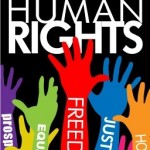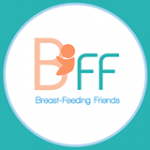By Jolene Tan, Programmes and Communications Senior Manager 
I read with dismay that a man extorted large sums from a male teacher by threatening to reveal their sexual relationship to the Ministry of Education and the teacher’s school (“Man pleads guilty to extorting S$197k, gifts from male teacher he had tryst with”, TODAYonline, Jan 12).
These criminal acts were carried out by an unscrupulous individual. But he was enabled by the atmosphere of secrecy that our society has collectively imposed on LGBT people.
While any married person might fear exposure of adultery, the teacher in this case faced further vulnerability because of the legal, societal and institutional discrimination that treats same-sex relationships as invalid and shameful.
Section 377A of the Penal Code stigmatises sexual activity between men, LGBT people are not protected against employment discrimination, and same-sex relationships are routinely censored from media representation.
As long as we demand that these relationships stay furtive, the people in them will remain vulnerable to abuse.
Indeed, the prevalence of sexual blackmail was cited by British parliamentarians in the 1960s as one reason for decriminalising homosexuality.
The experience of the Sexual Assault Care Centre (SACC) at the Association of Women for Action and Research (AWARE) reveals a similar disturbing issue: Section 377A can discourage some men from reporting sexual violence against them to the police.
They fear that in describing the sexual assault or their interactions with their attackers, they will reveal that they have, themselves, violated Section 377A, and thus be, themselves, subject to police investigation.
Most people face great social and emotional barriers to reporting sexual assault.
For some, Section 377A adds the fear that the authorities will treat them not as the victim of a crime, but as a perpetrator.
The Government’s position that the law will not be proactively enforced does not adequately allay this concern.
Individuals are understandably nervous about whether such a stand will truly override the weight of the written law, which plainly says they have committed a crime.
Moreover, for someone who has faced a potentially traumatic sexual assault, even if he is not subsequently prosecuted, the prospect of police investigations for an alleged crime can be enough to deter reporting.
His attacker is, therefore, never held to account.
The extortion case and SACC’s experiences show some of the great human costs of a supposed moral stance against homosexuality.
As long as our society continues to discriminate against LGBT people, we will aid and abet their abuse.
This letter first appeared in TODAY Voices on 19 January.









 AWARE strongly applauds the newly issued Tripartite Advisory on Managing Workplace Harassment (the Advisory) from MOM, NTUC and SNEF, as well as the consultative approach of the Tripartite Workgroup in developing it.
AWARE strongly applauds the newly issued Tripartite Advisory on Managing Workplace Harassment (the Advisory) from MOM, NTUC and SNEF, as well as the consultative approach of the Tripartite Workgroup in developing it. About ALMOS
About ALMOS